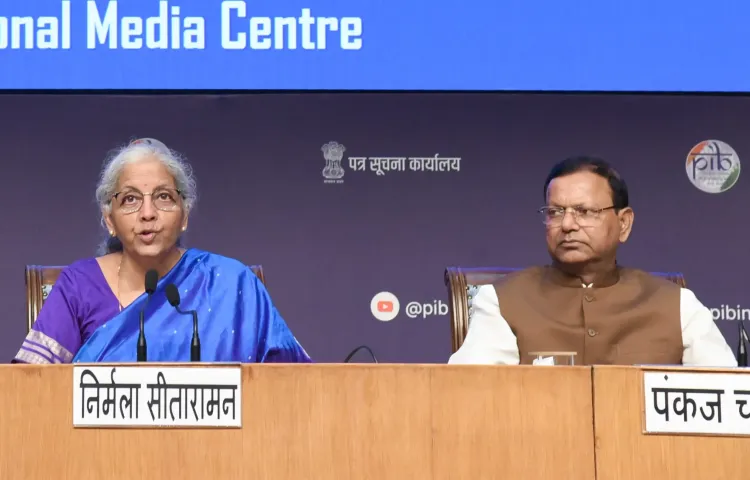How Will GST Reforms Benefit the Middle Class?

Synopsis
Key Takeaways
- GST on daily essentials reduced to 5% from 18%
- No GST on basic food items like paneer and roti
- School kits now cheaper by 15%
- Cancer medications exempt from GST
- Farmers benefit from lower taxes on equipment
New Delhi, Sep 22 (NationPress) In a significant relief for middle-class consumers, the Goods and Services Tax (GST) reforms took effect on Monday, resulting in reduced prices for a wide range of essential and non-essential items, encompassing food, automobiles, healthcare, personal care, and household goods.
Now, products like soap, toothpaste, shampoo, hair oil, and tooth powder — the fundamental necessities for every household — will incur only 5 percent GST instead of the previous 18 percent, thereby easing the financial strain on middle-class family budgets. A grocery and toiletries bill of Rs 5,000 could now see savings of Rs 500.
With tax rates reduced to 5 percent or even NIL on food items, a middle-class family spending approximately Rs 8,000 to Rs 10,000 monthly on groceries and food can expect to save around Rs 800 to Rs 1,000 each month — totaling over Rs 10,000 annually.
Moreover, taxation on everyday products such as paneer, roti, and packed parotta is now zero, while other items like butter, ghee, cheese, chocolates, biscuits, and pickles are now set at a 5 percent tax rate, reduced from either 18 or 12 percent.
The reduction in taxes on educational materials is sure to alleviate some pressure on everyday citizens.
A school kit priced at Rs 1,000 (including notebooks, pencils, and crayons) is now available for Rs 850.
In addition, GST on medicines for rare diseases, diagnostic kits, lab equipment, and medical supplies has been slashed to 5 percent from 12 percent.
Cancer medications now have a GST exemption, meaning that a medicine costing Rs 10,000 monthly will be cheaper by Rs 500 to Rs 1,200.
For instance, a television that previously cost Rs 40,000 will now be Rs 4,000 less, while solar heaters priced at Rs 60,000 per unit will see a reduction of Rs 7,000, and an air conditioner costing Rs 35,000 will be Rs 3,500 cheaper.
The GST adjustments also provide farmers with relief through reduced taxes on agricultural machinery. Artisans and entrepreneurs stand to gain as well.
As this new indirect tax framework — comprising 5, 18, and 40 percent — was launched on the first day of the auspicious nine-day Navratri celebration, Prime Minister Narendra Modi referred to the initiation of the tax reforms as the “GST Bachat Utsav”.
“Starting tomorrow, you can purchase your favorite items with ease. This is akin to a GST saving festival for every Indian,” the Prime Minister stated while addressing the nation ahead of the implementation of the new tax structure.
PM Modi highlighted that both the poor and the emerging middle class are receiving dual benefits following the GST rate reductions.










